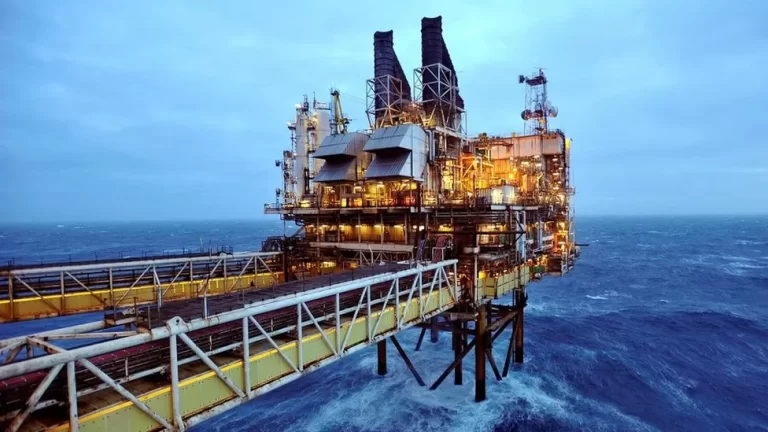Energy giant BP has reported lower than expected profits despite global oil prices rising again.
The company posted profits of $3.3bn (£2.7bn) between July and September, lower than predictions of $4bn.
Its earnings were down from $8.1bn in the same period in 2022 when BP made huge profits following Russia's invasion of Ukraine, which led to oil prices soaring. Oil prices are currently lower than that period, but have risen recently.
BP said while oil production was strong, gas trading had been “weak” in recent months. Its latest results are the first to be released after Bernard Looney resigned as the company's chief executive in September following a review of his personal relationships with colleagues.
Mr Looney, who had led the company since 2020, stepped down with immediate effect. While BP's profits for the three months to the end of September were lower than predicted by analysts, earnings were up from $2.6bn in the previous quarter.
“I think the business is stable despite not having a chief executive at the moment full-time properly, but I think there's a touch of complacency,” former BP executive Nick Butler told the BBC's Today programme.
But interim chief executive Murray Auchincloss said the quarter had been “solid” and that company expected to “grow earnings through this decade, and on track to deliver strong returns for our shareholders”.
The company said the rise in profits from earlier this year were a result of higher oil refining margins and increased oil and gas production.
However, it added that money made on its oil was “partly offset by weak gas marketing and trading”. BP said it expecting refining margins across the oil and gas industry to be “significantly lower” towards the end of 2023.
The World Bank has warned oil prices could rise to more than $150 a barrel if the conflict in the Middle East escalates. It said drawn-out war in the region could drive big rises in energy and food prices in a worst-case scenario.
On Tuesday, Brent crude, the benchmark for global oil prices, was $86 a barrel. Separately, BP also said it had taken a $540m charge on three wind farm projects off the coast of New York.
The company, which is carrying out the projects in partnership with Norway's Equinor, said it had failed to renegotiate agreements with authorities in an attempt to mitigate the impact of inflation and delays.
In the past couple of years, higher oil and gas prices have fuelled rises in energy bills for households and businesses, which has resulted in the government implementing a windfall tax on oil giants including BP and Shell.
A windfall tax is a one-off levy that targets companies who benefit from something they were not responsible for, in this case a sharp rise in oil prices following Russia's invasion of Ukraine. The policy is currently in place until March 2028 and means the firms pay 35% on UK profits.
Oil and gas firms operating in the North Sea are already taxed differently to other firms. They pay 30% corporation tax on their profits as well as a supplementary 10% rate. It means, with the windfall tax, firms have a total tax rate of 75%.
Critics of the tax have argued such a high tax rate could hit investment in UK projects.
BP said that in the first nine months of this year, it paid about $1.35bn in tax on its North Sea business, $620m of which was as a result of the windfall. In 2022, it paid $2.2bn in tax, of which $700m was a result of the policy.
— CutC by bbc.com


